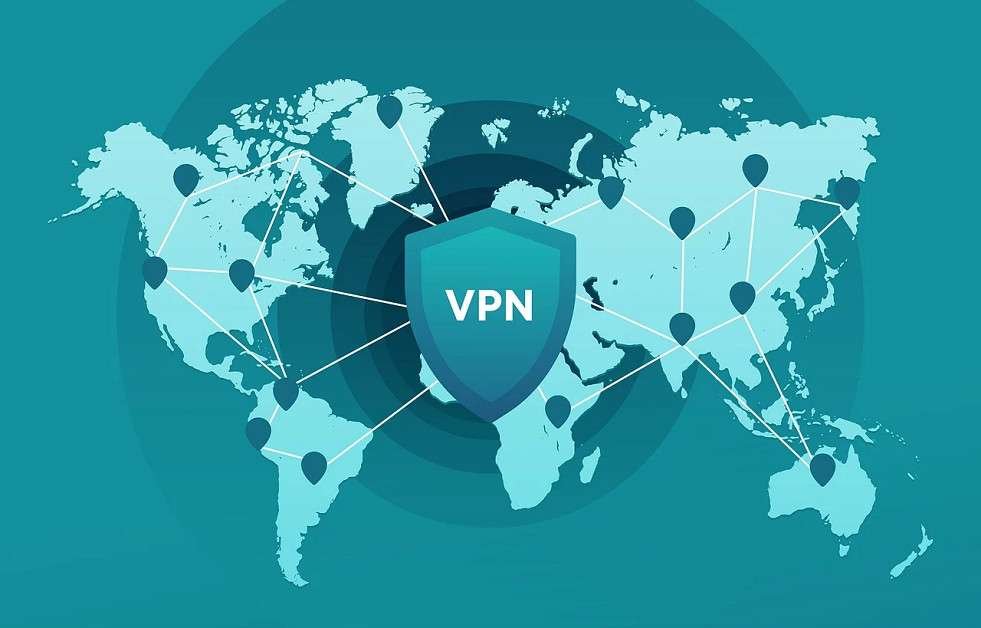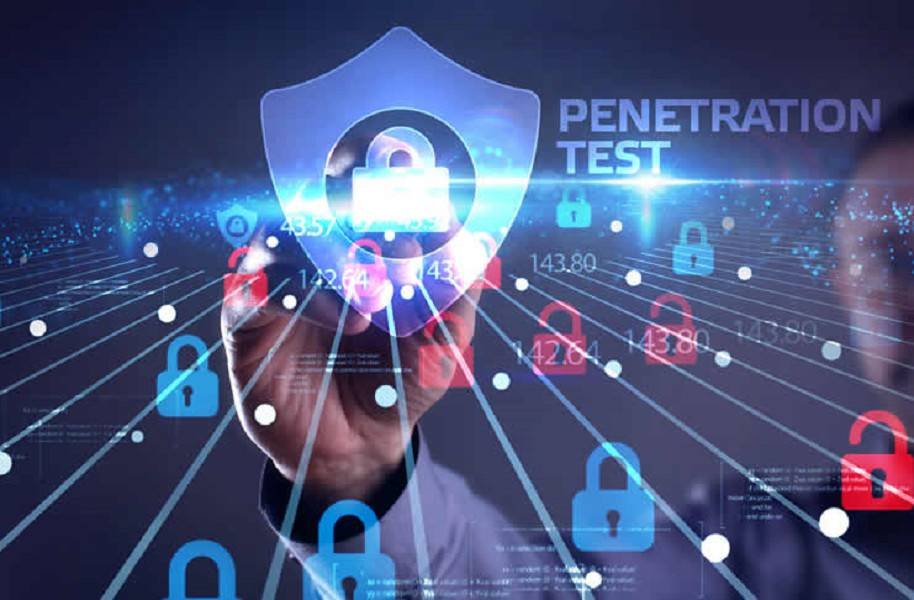Learn to protect yourself online with a Virtual Private Network (VPN). Our guide explains how a VPN works, why you need one, and how to choose the right one. Stay safe and secure while browsing the internet with our expert tips and advice. Online security and privacy have become critical concerns for internet users worldwide in today’s digital age. With hackers, cybercriminals, and government surveillance becoming increasingly sophisticated, protecting sensitive data and online activities has never been more important. Fortunately, there is a simple yet effective solution – a Virtual Private Network (VPN).
This article will explain what a VPN is, how it works, and why it is crucial to stay safe and secure online. We will also discuss the benefits of using a VPN and provide practical tips on choosing and setting up a VPN service.
What is a Virtual Private Network (VPN)?
A Virtual Private Network (VPN) is a secure and private network connection between your device and the internet. It creates a private and encrypted tunnel that hides your internet activity and protects your data from prying eyes.
When you use a VPN, all your internet traffic is routed through the VPN’s servers instead of your ISP’s servers. Your ISP and other third-party entities cannot track or monitor your online activity, and your online identity and location remain anonymous.
How Does a VPN Work?
A VPN works by encrypting your internet traffic and routing it through a remote server owned by the VPN provider. When you connect to a VPN server, your device creates a secure and encrypted tunnel between your device and the VPN server. Any data transmitted between your device and the VPN server is protected and cannot be intercepted or read by anyone else.
Once your data reaches the VPN server, it is decrypted and sent to its intended destination, whether a website, a streaming service, or any other online service. The VPN server acts as a middleman between your device and the internet, which means that your IP address and location are masked and appear to be from the VPN server’s location.
Why is it Important to Use a VPN?

There are several reasons why using a VPN is essential for staying safe and secure online. Here are a few:
Protects Your Online Privacy: A VPN encrypts your internet traffic and hides your online identity and location, making it difficult for anyone to track or monitor your online activity.
Securely Accesses Restricted Content: A VPN allows you to access content that may be restricted in your country or region. For example, you can use a VPN to watch your favorite streaming services anywhere.
Prevents Hackers and Cybercriminals from Stealing Your Data: A VPN adds an extra layer of security to your internet connection.
Allows You to Browse Anonymously: A VPN masks your online identity and location, meaning your internet activities remain private and anonymous.
Provides Additional Security for Public Wi-Fi: A VPN encrypts your internet traffic, making it safe to use public Wi-Fi hotspots without the risk of hackers intercepting your data.
How to Choose the Right VPN
Choosing the right VPN can be challenging, especially with so many options available in the market. Here are some factors to consider when selecting a VPN:
Consider Your Privacy Needs
Before choosing a VPN, consider your privacy needs. Do you want a VPN that logs your data or one that is completely anonymous? Knowing your privacy needs will help you select a VPN that meets your requirements.
Look for a No-Logs Policy
A no-logs policy means the VPN provider does not store data on its servers. This ensures that your online activities remain private.
Check the Number of Servers and Locations
A VPN with many servers and locations ensures that you can access content from anywhere in the world.
Check the Encryption and Protocols Used
The encryption and protocols used by the VPN provider play a significant role in ensuring the security of your internet connection. Look for a VPN that uses strong encryption.
Consider the Cost
VPN services are available at different price points. Consider your budget and choose a VPN that offers the features you need at a price you can afford.
How to Set Up a VPN
Setting up a VPN is relatively easy, and most VPN providers offer user-friendly software for different devices. Here’s how to set up a VPN:
Choose Your VPN Provider
Choose a VPN provider that meets your privacy needs and budget.
Download and Install the VPN Software
Download and install the VPN software on your device.
Log in and Connect to a Server
Log in to your VPN account and connect to a server. Your internet connection is now secure and private.
Test Your VPN Connection
Test your VPN connection to ensure that it’s working correctly.
Common VPN Myths
There are several common myths about VPNs. Here are a few:
VPNs Slow Down Your Internet Connection
While it’s true that using a VPN can slow down your internet connection, the difference is usually negligible.
VPNs are Illegal
Using a VPN is legal in most countries. However, some countries have banned VPNs or have strict laws regarding their use.
VPNs are Only for Tech-Savvy Users
VPN services are user-friendly, and most providers offer software that is easy to use, even for beginners.
How does a virtual private network help you stay secure?
A virtual private network (VPN) can help you stay secure in several ways. Firstly, it encrypts your internet traffic, making it unreadable to anyone trying to intercept it, such as hackers or government agencies. This ensures that your online activity, browsing history, and communications remain private.
Secondly, a VPN allows you to access the internet through a different server location than your own, which can help you avoid online censorship or geographic content restrictions. This means you can access content that may be blocked in your country, such as streaming services or social media platforms.
Finally, a VPN can also help protect you from online threats, such as malware and phishing attacks. By masking your IP address and encrypting your data, a VPN makes it more difficult for cybercriminals to track and steal your information.
Overall, a VPN is an effective way to stay secure online, protecting your privacy, allowing you to access restricted content, and preventing cyberattacks. It’s important to choose a reputable VPN provider and follow best practices for online security, such as using strong passwords and being cautious when clicking links from unknown sources.
Advantages of a Virtual Private Network

A virtual private network (VPN) offers several advantages, including:
Enhanced privacy: A VPN encrypts your internet traffic, making it unreadable to anyone trying to intercept it. This ensures that your online activity remains private and cannot be tracked by your internet service provider, government agencies, or hackers.
Access to restricted content: A VPN allows you to access content that may be restricted in your country, such as streaming services, social media platforms, or news websites. Connecting to a VPN server in a different country allows you to bypass geographical content restrictions and access your desired content.
Improved online security: A VPN can help protect you from online threats like malware and phishing attacks. By masking your IP address and encrypting your data, a VPN makes it more difficult for cybercriminals to track and steal your information.
Remote access: A VPN allows you to securely access your company’s network or other resources remotely. This is particularly useful for employees who work from home or need to travel frequently.
Improved performance: Some ISPs may throttle your internet connection based on your online activity. By using a VPN, you can avoid this and enjoy faster internet speeds.
Protection on public Wi-Fi: When you connect to public Wi-Fi, your online activity is visible to anyone else on the network. A VPN can protect you from this by encrypting your traffic and ensuring your online activity remains private.
Overall, a VPN is an effective tool for improving online privacy, security, and access. Choosing a reputable VPN provider and following best practices for online security is important to ensure you get the most out of your VPN.
Conclusion
In conclusion, a VPN is an effective way to stay safe and secure online. It offers several benefits, including protecting your online privacy, securely accessing restricted content, and preventing hackers and cybercriminals from stealing your data. When choosing a VPN, consider your privacy needs, look for a no-logs policy, check the number of servers and locations, and consider the encryption and protocols used. Setting up a VPN is relatively easy, and most VPN providers offer user-friendly software for different devices. Don’t be fooled by common VPN myths, such as VPNs slowing down your internet connection or being illegal. A VPN is legal and easy to use in most countries, even for beginners.
FAQs
- Can a VPN completely protect my online privacy?
While a VPN can protect your online privacy to a great extent, it’s important to remember that no technology is foolproof. It’s still important to practice good online habits, such as using strong passwords and being cautious about clicking on links from unknown sources.
2. Can I use a free VPN instead of a paid one?
While some reputable free VPNs are available, most have significant drawbacks, such as limited server locations and slower connection speeds. Paid VPNs generally offer better security and more features.
3. Is using a VPN illegal?
Using a VPN is legal in most countries, but some countries have banned VPNs or have strict laws. It’s important to check your local laws before using a VPN.
4. Do I need to use a VPN if I don’t use public Wi-Fi?
While using a VPN on public Wi-Fi is especially important, it’s still a good idea to use it even when you’re on a private network. A VPN can help protect your online privacy and prevent hackers from intercepting your data.
Also read:Fast and secure Data Recovery:Ensuring Your Data’s safety


